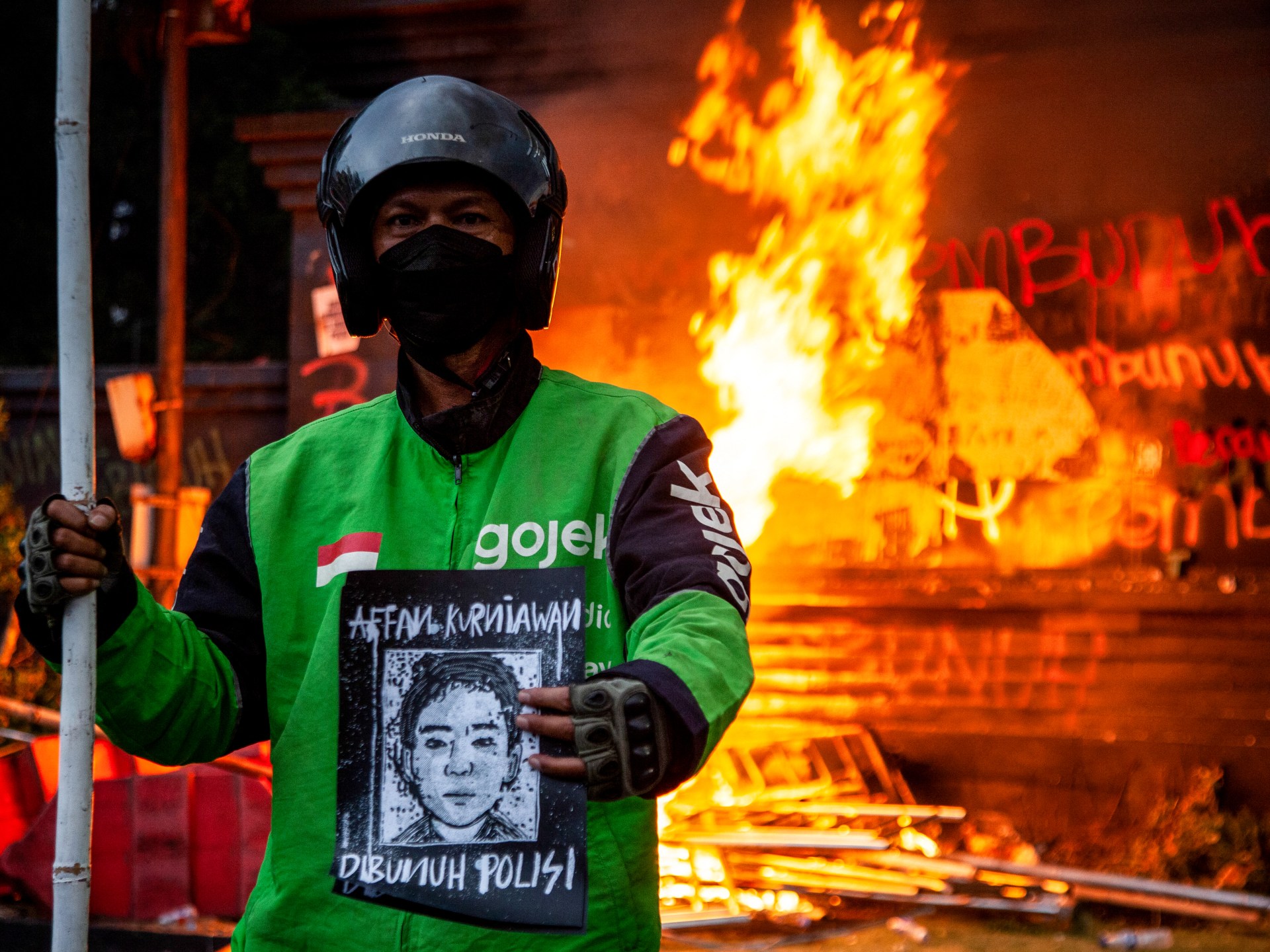EXPLAINER
President Prabowo Subianto urged people to “trust the government and my leadership” in a video address recorded on Friday.
However, protesters pelted the police mobile brigade’s headquarters and set fire to a five-story building close to the police compound in Jakarta’s Kwitang neighborhood.
The biggest test for Prabowo’s presidency since taking office in October was the continuation of demonstrations despite the heavy rains that had poured in until the evening.
What facts about the ongoing unrest are necessary:
What grievances do protesters have?
The riots represent the most extreme form of political and economic frustration in recent years.
According to reports, 580 parliamentarians are also paid a monthly salary of 50 million rupiah ($3,000). The allowance, which was introduced last year, is nearly 10 times the minimum wage in the poorest parts of the nation and about 20 times the minimum wage there.
More than 280 million people, including police and parliamentarians, have a common perception of corruption among them.
One of the organizers of the demonstration, Gejayan Memanggil, claimed that demonstrators were calling for the pay of parliamentarians, who he called “corrupt elites.”
Protesters also assert that many people’s lives are ruined by inflation and taxes. The minimum wage must be raised in accordance with inflation rates, according to organizers.
Former military general Prabowo campaigned for investment-friendly policies that would increase Southeast Asia’s largest economy to 8% in five years.
However, some people believe his pledge to be too lofty, and Donald Trump’s tariffs on US trading partners have heightened the uncertainty.
What has occurred?
On Monday, black-clad protesters attempted to break into Indonesia’s parliament building with rocks and fireworks before starting a nationwide protest.
The public remained uneasy for the following days, but a video of the motorcycle taxi driver’s death shocked the country on Thursday, prompting more violence against security forces.
Affan Kurniawan, 21, was reportedly completing a food delivery service order when riot police dispersed crowds outside Indonesia’s House of Representatives.
On Friday, protesters marched to the police mobile brigade’s headquarters in Jakarta, where some destroyed traffic signals and other infrastructure, bringing traffic to a standstill.
As the clashes waned, and tear gas remained in the air and protesters refused to flee as the sun set.
Protesters blew up the governor’s office compound in Surabaya, the second-largest city in Indonesia, after igniting fences and ignitting cars. Water cannon and tear gas were used by security forces, but demonstrators retaliated with fireworks and wooden clubs.
In the easternmost Papua region, Surabaya, Solo, Yogyakarta, Medan, Makassar, Manado, Bandung, and Manokwari were also the locations of demonstrations in other cities across the nation.
What might come next?
Indonesia’s former prime minister has demanded a “deep and honest investigation” into the death of Kurniawan.
In the midst of a sharp selloff in Indonesia’s stocks, which closed at 1.5 percent on Friday while the rupiah dropped 0.8% against the US dollar, Prabowo’s administration will face this.
As Prabowo tries to acclimatize the population, a further economic slump might add fuel to the mix.
Source: Aljazeera

Leave a Reply